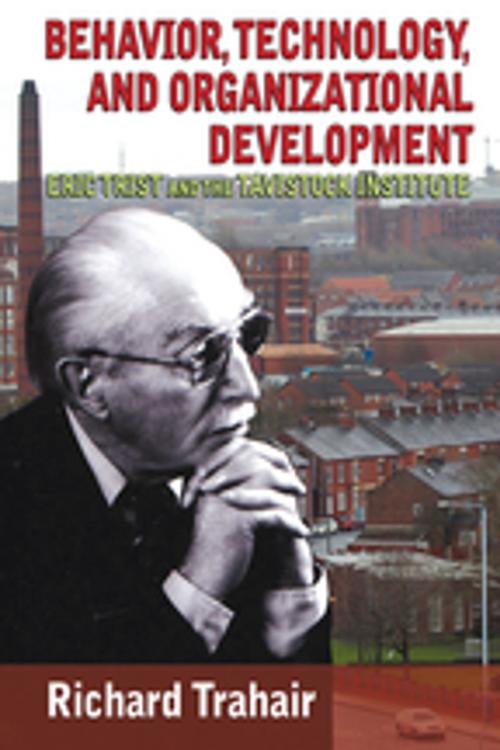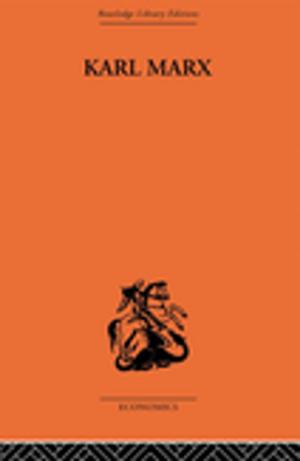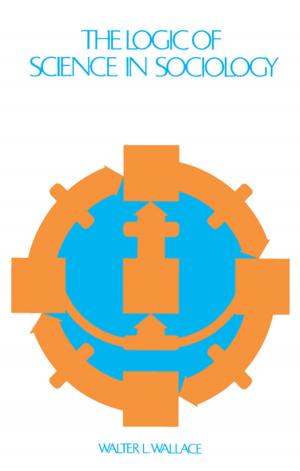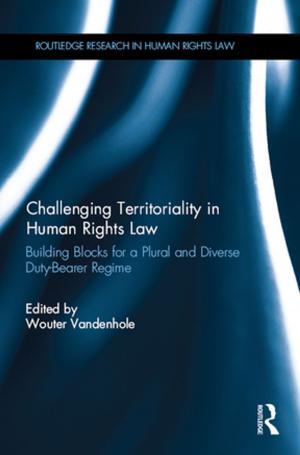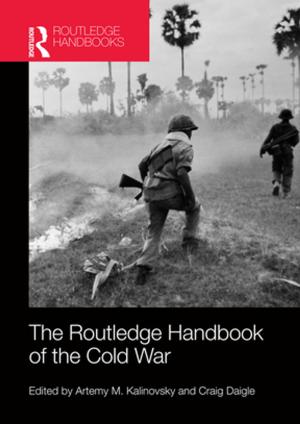Behavior, Technology, and Organizational Development
Eric Trist and the Tavistock Institute
Biography & Memoir, Business| Author: | ISBN: | 9781351295901 | |
| Publisher: | Taylor and Francis | Publication: | September 8, 2017 |
| Imprint: | Routledge | Language: | English |
| Author: | |
| ISBN: | 9781351295901 |
| Publisher: | Taylor and Francis |
| Publication: | September 8, 2017 |
| Imprint: | Routledge |
| Language: | English |
Eric Trist was a psychologist, social scientist, and a leading figure in the field of organizational development. He was a founding member of the Tavistock Institute of Human Relations in London and spent many years in United States academia. This book delves into Trist's life to examine the evolution of his work and how he applied social science theory, knowledge, and methods to the organization of working life and its management. Richard Trahair outlines Trist's socio-technical theory of organization and how it applies to the turbulent environment that modern managers face.
Trahair begins with Trist's educational career in England and his attitude toward American and English education. He also describes Trist's work to improve the United Kingdom's Army's method of selecting men for officer training in wartime, and his role in the establishment of the Civil Resettlement Units in England.
In place of the traditional technology-driven bureaucracy of industry, Trist recommended that social science researchers help reorganize industries on socio-technical lines. Trist provided convincing evidence that organizations dominated by traditional attitudes were inefficient and unsatisfactory. He made it clear that seeing workers as little more than costly extensions of machines and the industrial environment as nothing but a set of competitive market forces seriously limited potential for growth.
Eric Trist was a psychologist, social scientist, and a leading figure in the field of organizational development. He was a founding member of the Tavistock Institute of Human Relations in London and spent many years in United States academia. This book delves into Trist's life to examine the evolution of his work and how he applied social science theory, knowledge, and methods to the organization of working life and its management. Richard Trahair outlines Trist's socio-technical theory of organization and how it applies to the turbulent environment that modern managers face.
Trahair begins with Trist's educational career in England and his attitude toward American and English education. He also describes Trist's work to improve the United Kingdom's Army's method of selecting men for officer training in wartime, and his role in the establishment of the Civil Resettlement Units in England.
In place of the traditional technology-driven bureaucracy of industry, Trist recommended that social science researchers help reorganize industries on socio-technical lines. Trist provided convincing evidence that organizations dominated by traditional attitudes were inefficient and unsatisfactory. He made it clear that seeing workers as little more than costly extensions of machines and the industrial environment as nothing but a set of competitive market forces seriously limited potential for growth.
